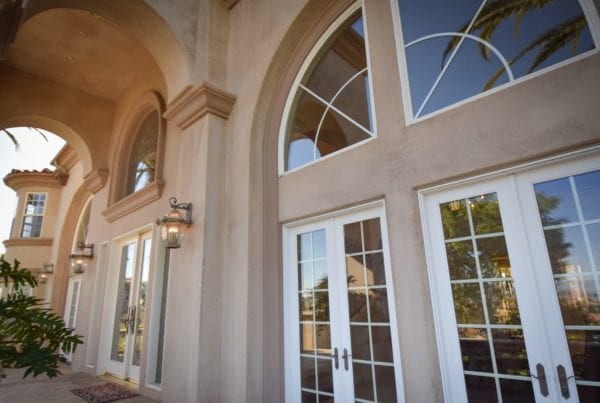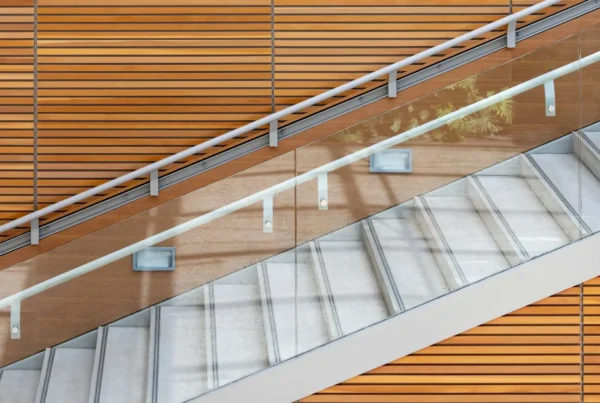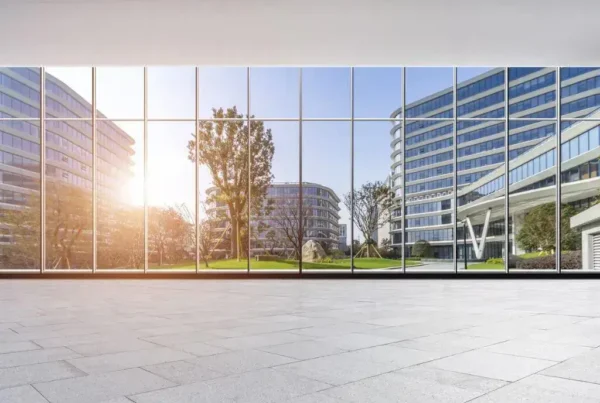If you’re considering window tint for your property — whether it’s an office, retail space, or any other commercial building — you might be wondering: Does window tint affect cell phone reception? This is a common concern, particularly for customers who are new to window films and their many benefits. While there was a time when some window tints did interfere with cell signals, modern innovations have largely eliminated this issue.
At Campbell Glass and Films, we receive this question frequently from business owners and property managers, so we’ve created this guide to address your concerns in detail. Below, we’ll explain how modern window films, particularly non-metalized options, allow you to enjoy the many benefits of commercial window tinting without sacrificing cellular reception.

How Do Window Tints Work?
Before diving into the effects of window tint on cell phone signals, it helps to understand how window tints function.
Window films are thin, multi-layered materials that adhere directly to the surface of existing glass to provide a range of benefits, including:
- Heat reduction: By blocking infrared light, certain types of window tints can reduce heat buildup in buildings, making interiors more comfortable and cutting down on cooling costs.
- UV protection: Quality window tinting films block up to 99.9% of harmful ultraviolet (UV) rays, helping protect both people and property inside from long-term sun damage.
- Glare reduction: Window films can reduce the intensity of glare caused by sunlight, making it easier for employees to work without the distraction of harsh glare or improving visibility for customers in retail environments.
- Increased privacy: Many tinting films, including dark-tinted and reflective films, offer improved daytime privacy for commercial properties by allowing you to see outside while preventing people from easily looking in.
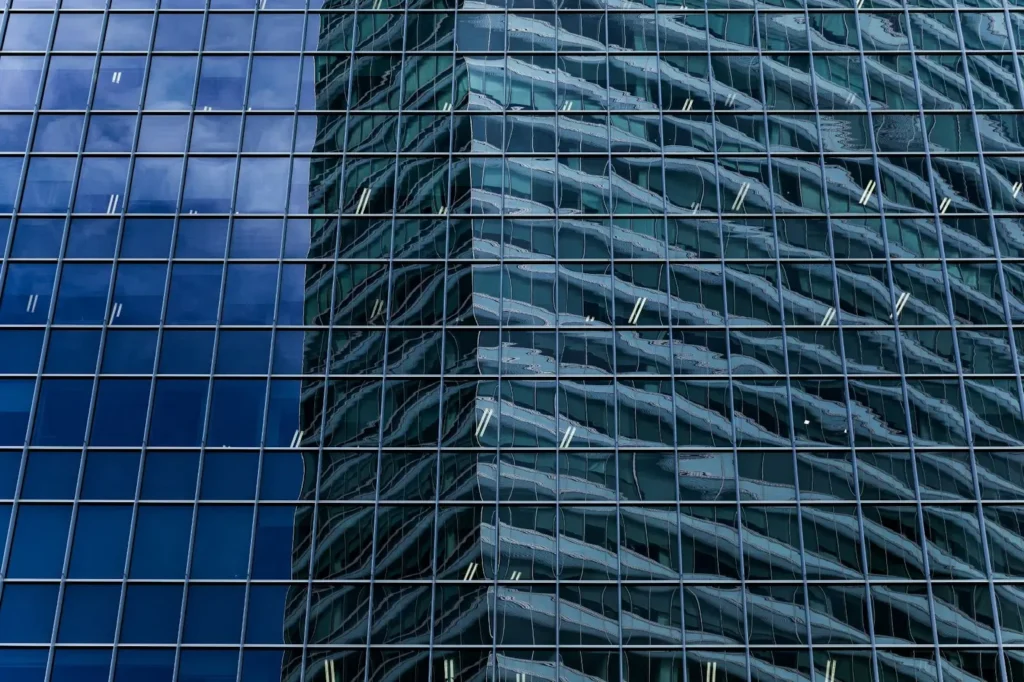
But what about cell phone signals? Let’s take a closer look.
Why Some Window Tints Used To Affect Cell Reception
In the early days of window tinting, metalized window films were more common. These films were embedded with metallic particles to reflect heat and light away from the glass. While effective at temperature control, the metallic elements could interfere with electromagnetic signals, including those from cell towers, Wi-Fi networks, and GPS systems.
Since metal can block or reflect signals, metalized films sometimes led to weaker cell phone reception, especially if you were near the tinted windows or in areas where the signal was already weak. This could particularly be an issue for certain types of commercial properties where strong communication signals are essential for operations.
However, this problem has been largely resolved with the introduction of modern, non-metalized window films.
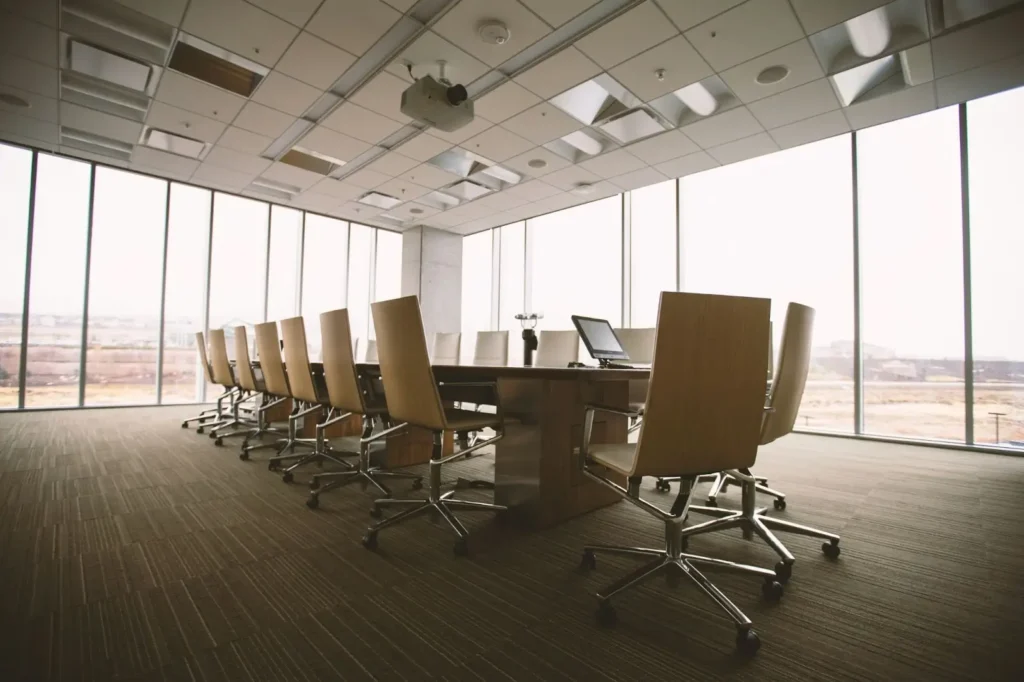
The Shift to Non-Metalized Films
Fortunately, advancements in window tinting materials have eliminated the need for metal particles in window films.
Today’s high-performance films, such as 3M window films, use non-metalized layers to achieve benefits like heat rejection, glare reduction, and UV protection — without compromising signal strength.
For example, 3M Prestige Series window films are made with multiple layers of polyester and employ specialized nano-technology, rather than metallic particles, to provide benefits. This advanced composition is highly effective at controlling heat, reducing glare, and offering UV protection, while allowing electromagnetic signals like cell phone, Wi-Fi, and GPS signals to pass through the glass with ease.

The Best Solution: Non-Metalized, Ceramic, and Nano-Technology Films
If you’re looking to install window tint without worrying about cell phone signal interference, non-metalized and ceramic films are your best options. These films offer the full range of benefits — heat reduction, UV protection, and glare control — without affecting your wireless signals whatsoever.
At Campbell Glass and Films, we specialize in installing high-performance, non-metalized window films, including 3M Prestige Series films (one of the most popular choices). These window films provide all the advantages of window tinting, while allowing clear and uninterrupted cell phone reception, making them ideal for offices, retail spaces, and other commercial environments where reliable communication is critical.
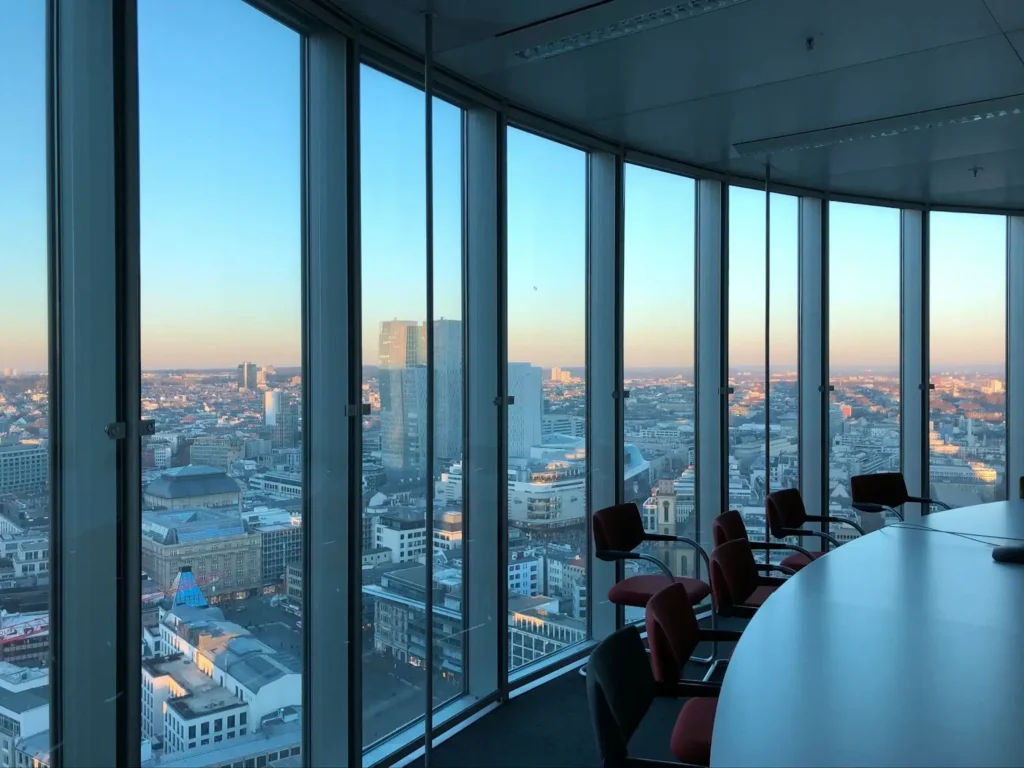
Choosing the Right Window Tint for Your Property
When selecting window tint for your property, it’s important to consider the specific needs of your space. For businesses that rely heavily on cellular communication, strong Wi-Fi, and GPS navigation, opting for non-metalized films is essential to avoid interference with these critical signals.
If energy efficiency, glare reduction, and UV protection are top priorities, non-metalized films like the 3M Prestige Series window films can help you achieve total sun control. These films offer superior performance, helping you maintain a comfortable, productive environment for your employees and customers, while also reducing your energy costs.

Key Takeaways
While older, metalized window tints could interfere with cell phone reception, modern, non-metalized films ensure you no longer have to worry about these issues.
At Campbell Glass and Films, we provide state-of-the-art window film solutions that deliver all the benefits of window tinting without sacrificing connectivity.
If you have further questions about how different types of window tint might impact your property, our team is here to help! Contact us today to learn more about the best window tinting options for your business or commercial space.

